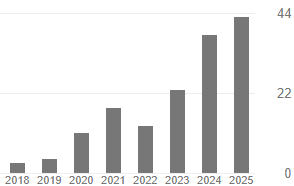Design and Development of Photovoltaic Planning Installation Using an Unmanned Aerial Vehicle Image in Politeknik Kuching Sarawak
Keywords:
Unmanned Aerial Vehicles, Solar Photovoltaic, Solar Energy Technologies, Drones, High-Resolution Aerial ImagesAbstract
As global efforts intensify towards adopting more sustainable energy solutions, solar energy has emerged as a leading renewable resource due to its abundance, long-term viability, and increasing accessibility. Among the most widely utilised technologies for harnessing solar energy are solar photovoltaic (PV) systems, which convert sunlight directly into electrical energy. Despite their growing deployment, identifying optimal locations for PV installation remains a significant practical challenge, especially on the rooftop. Conventional methods, such as manual rooftop surveys, are often time-consuming, costly, and may pose safety risks. This issue is particularly evident at Politeknik Kuching Sarawak where such limitations have hindered effective planning and implementation of solar PV systems. To address this challenge, the present study proposes an Unmanned Aerial Vehicle (UAV)-based approach to improve the efficiency and safety of the installation planning process. UAVs, commonly known as drones, were employed to capture high-resolution aerial images of the campus buildings. These images were subsequently processed using photogrammetry software to assess the suitability of rooftop areas for PV panel installation. Compared to conventional methods, this UAV-based technique offers several advantages, including improved safety, reduced labour costs, and significantly faster data acquisition. The results demonstrated that the system effectively identified suitable rooftop areas for PV panel installation with a high degree of visual recognition accuracy. This study highlights the practical benefits of integrating UAV technology into solar PV planning and suggests its broader potential in accelerating the transition to low-carbon energy systems, particularly within educational and institutional settings.
Downloads
Published
How to Cite
Issue
Section
License
Copyright (c) 2025 Politeknik & Kolej Komuniti Journal of Engineering and Technology

This work is licensed under a Creative Commons Attribution-NonCommercial-NoDerivatives 4.0 International License.







